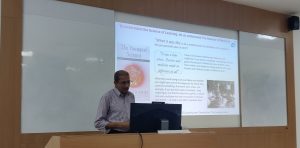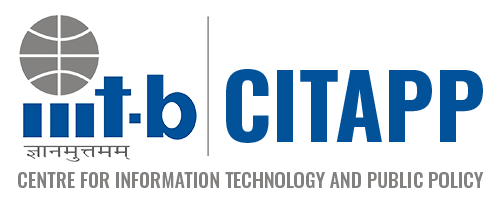
Date: 9/11/2022
About the Talk:
It is widely agreed today that the education and training of a country’s workforce is a major factor in determining how well the country’s economy will perform. It is also understood now, that it is not merely the average years of schooling, but actual learning (as measured by test scores) that matters. Further reports like ASER show that learning levels in India currently are very poor – over 50% of students in class 5 cannot read class 2 text, for example. Can technology help us address this huge problem, and if so, how? While there is no shortage of hype especially in the era where much learning had moved online, the true answer turns out to be more nuanced than we may expect. World over, improving student learning has proved to be one of the toughest problems to solve though many countries have tried to ‘throw money at the problem’ (and failed). EdTech solutions have promised a lot, but only some seem to actually impact learning.
Technology, in our experience, can make a huge positive impact in education, if, it is based on educational research on how students learn. We call this the Science of Learning. Being an emerging field, the term is used in different ways – at times even used loosely to cover all research about education. But just as the science of medicine has well-defined protocols to identify illnesses and processes to treat them, we refer to the Science of Learning as a systematic was of identifying reasons students fail to understand concepts and then techniques to address those reasons.
Just as illnesses have many but a finite number of causes, it is found that most student learning issues have small set of identifiable reasons. The science of medicine is much younger than many people think – made possible by the twin discoveries of antibiotics and antiseptics. In the same way, technology and personalised adaptive learning allows student learning to be tracked at a granular level, misconception patterns to be identified from data of thousands of students, and remediation to be targeted through individualised questions, activities or interventions.
Technology can play a key role both in the process of assessing student learning as well in remedying learning gaps and thus improving learning. Good assessments help unravel patterns of learning and teaching gaps and provide feedback for improvement. Well-designed adaptive learning products can determine what the student is not understanding and help them improve by providing challenges suited to them. For the first time in history, technology solutions, based on the Science of Learning and working with teachers, can help every child learn with understanding. We are not there yet, and many challenges remain. But technology in the coming decades may just help every student achieve levels of learning at affordable costs that today feels impossible.
Bio:
Sridhar Rajagopalan is an educational entrepreneur who has been described as the person ‘who has helped change the way learning outcomes are seen in India’. He has a BTech degree in Mechanical Engineering from IIT Madras and a PGDM from IIM Ahmedabad. He co-founded Eklavya School Ahmedabad, ranked the top school in its city and state and the 15th in the country. Sridhar co-founded Educational Initiatives Pvt. Ltd. in 2001 and is named as the first inventor of Mindspark, EI’s EdTech product as per its patent.
Sridhar has been a Board Member of Central Square Foundation, New Delhi and is a member of the Board of Trustees of Pratham Gujarat since 2002. He is a member of a number of state and central government educational committees in India and an invited speaker at various international educational conferences.
Under Sridhar’s leadership, EI has conducted large scale assessments on student learning throughout India as well as in other countries of South Asia. EI is working with the CBSE and ICSE Boards to strengthen their Class 10 and 12 Board Exams. EI has worked on multi-year projects involving hundreds of thousands of students in the states of Gujarat, Bihar, Haryana and Andhra Pradesh apart from other educational projects in many other states.
CITAPP’s Monthly Seminar Series is an attempt to create a forum where researchers across IIITB domains can meet and discuss cutting edge research on the chosen theme of the semester. The Series hopes to explore a technology or topic for its ramifications in different realms of social activity. In particular, we are interested in understanding the specific kinds of complexity that these domains present for technological innovation and design.

